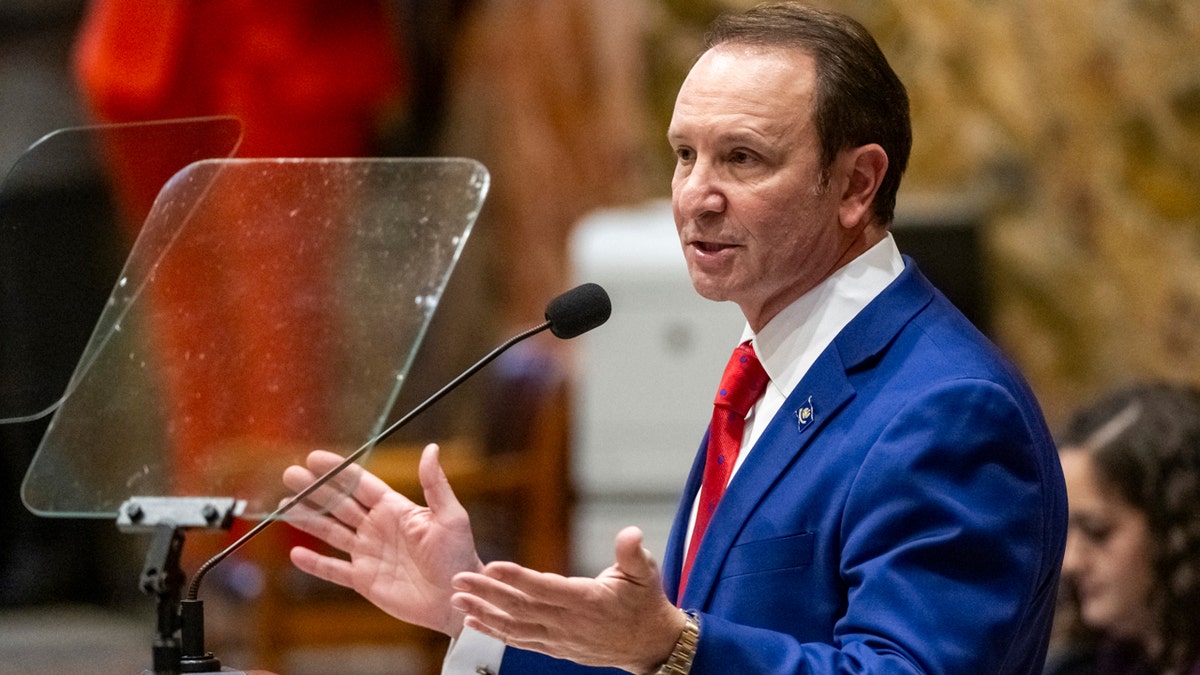
- Republican Louisiana Gov. Jeff Landry issued a disaster declaration for the crawfish industry Wednesday amid an ongoing shortage.
- Drought, unseasonable heat and saltwater intrusion are among conditions blamed for the comparative absence of the so-called “mudbugs” in this year’s harvest.
- “All 365,000 crawfish acres in Louisiana have been affected by these conditions,” a written statement by Landry read. “That is why I am issuing a disaster declaration. The crawfish industry needs all the support it can get right now.”
Amid a crawfish shortage in Louisiana, the nation’s top producer of the crustaceans that are a staple in Gulf Coast seafood boils, Gov. Jeff Landry issued a disaster declaration for the impacted industry Wednesday.
Last year’s drought, extreme heat, saltwater intrusion on the Mississippi River and a hard winter freeze in the Bayou State have devastated this year’s crawfish harvest and led to significant price hikes for those purchasing “mudbugs.” Landry says the shortage is not only affecting Louisiana’s economy but also “our way of life.”
“All 365,000 crawfish acres in Louisiana have been affected by these conditions,” Landry said in a written statement Wednesday. “That is why I am issuing a disaster declaration. The crawfish industry needs all the support it can get right now.”
LOUISIANA GOV. LANDRY DECLARES STATE OF EMERGENCY OVER POLICE SHORTAGE
Landry’s disaster declaration, which is the legal underpinning that assists in securing federal resources, comes shortly after a request from Louisiana’s congressional delegation seeking to unlock federal aid to help farmers back in their home state.
During a typical year, Louisiana generates anywhere from 175 million to 200 million pounds of crawfish — contributing $500 million to the state’s economy annually, according to the governor’s office.

Republican Louisiana Gov. Jeff Landry speaks in the House Chamber in Baton Rouge, Louisiana, on Jan. 15, 2024. (Michael Johnson/The Advocate via AP, Pool, File)
However, amid severe drought in 2023 and extreme heat, typically one of the wettest states in the country saw some of its driest conditions. As a result, the weather dried out the soil where crawfish burrow to lay eggs.
The Louisiana State University’s Agriculture Center estimates the potential losses to the state’s crawfish industry to be nearly $140 million.
“Louisiana’s crawfish industry is more than an economic driver for our state — it is a deep part of our cultural heritage,” said Mike Strain, commissioner of the Louisiana Department of Agriculture and Forestry.
Crawfish, which have been harvested commercially in the state since at least the 1800s, are usually plentiful in Louisiana during the late winter and through the spring.
The tail meat, fresh or frozen, of the tiny lobster-like crustaceans are used in a variety of dishes, including crawfish etouffee, gumbos and po-boys. But the most popular way to serve them is boiled with corn and potatoes and a variety of seasonings. Crawfish boils, which see pounds of the freshly cooked crustaceans poured onto communal tables, are popular during Carnival season and during Lent, when many in heavily Catholic south Louisiana seek alternatives to meat.
However, this year Strain said some Mardi Gras celebrations continued without chowing down on crawfish, which were scarce and unaffordable for many.
Around this time last year, the cost for a pound of boiled crawfish was between $3 to $5. Now, restaurants across the state are selling them for $10 to $12 per pound, as reported by The Advocate.
CLICK HERE TO GET THE FOX NEWS APP
In a letter last week to United States Department of Agriculture Secretary Tom Vilsack, Strain said: “For the first time in many years, due to sustained drought in 2023 and freezing temperatures in early 2024, crawfish are simply unavailable.”








